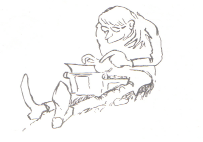Copyright©Yogesh Patel & all respective copyright holders of the material published












Recipients of our Poet-of-the-Month Honour
Pramila Venkateswaran
Is There a Fish in Your Tomato?
For
A Lifetime Achievement of Excellence as a Poet

Pramila Venkateswaran, poet laureate of Suffolk County, Long Island (2013-
Recently, she won the Local Gems Chapbook contest for her volume, Slow Ripening. Author of numerous essays on poetics as well as creative non-
visit www.pramilav.com.
To
Pramila Venkateswaran
Patrons: Lord Parekh & Lord Dholakia
Please click on the covers to order the books

Editor’s Comment
I have always admired Pramilla’s work. Hence, when Saleem Peeradina, a past winner of the Word Masala Award, proposed her name, I was thrilled to explore more of her recent poems. Her statement may tell us of her feminist approach, but this can be misleading. Her subject matters are a far-
What an original title! Is There a Fish in Your Tomato? Great poetry always transcends the desiccated husk that can be a poem of description. It teases us with metaphors and similes; It playfully engages us in making fresh discoveries and finding new meanings and poetic joys. Here a poet creates a comic connection with identical genes enjoyed by a tomato and a fish as a result of a scientific experiment. Pramilla leads us from the creative games of science to the games of illusions with a poetic muse tossing our taste buds to the tang of fish within a bite of a tomato and at the same time suggesting a sexual connotation with one word -
-

Word Masala Award


To order please click on the name below:
Sharp yet soft with resonance, poignant, and weighty with personal and social layers. Each poem was a snapshot of grief and the pain of human relationships-
-
**
Excerpts from South Asian Review (http://www.southasianliteraryassociation.org/south-
In Thirteen Days to Let Go, Venkateswaran conducts us through the prescribed Hindu rituals following the death of her father, that seek to satisfy the spirit of the dead person.
-
I am upto my neck in philosophy,
My toes touching its shifting floor.
In “Sighting Hawks,” she goes “hawk-
Saleem Peeradina

To order, please click on the name below:
This impressive volume of poetry is framed on a cosmopolitan, global scale and fleshed with intelligent and compassionate observation. Although, there is the odd, once-
-
I am an idealist who believes that art is radical in its ability to heal and possibly transform the artist as well as the reader. As an artist I feel I have the responsibility to describe social and political events around me. Art is ultimately political: I write about women’s lives, their voices raised in protest, their power and their victimization. My poetry ranges giving voice to hunger strikers, to the suicide of farmers as a result of the unfair global free trade practices, to the beauty of watching my daughters grow up. I use humour, myth, dialogue to get to the heart of a poem, play with words to make them sing.
Pramila Venkateswaran, poet laureate of Suffolk County, Long Island, is author of Thirtha (Yuganta Press, 2002), Behind Dark Waters (Plain View Press, 2008), Draw Me Inmost (Stockport Flats, 2009), and Trace (Finishing Line Press, 2011).
Poet’s Statement

E
a
c
h
round tomato fills my hand,
no wrinkle, smudge, scab or hole
pierced by worm. A work of art, I marvel.
Every tomato perfectly cloned minus rot or
cleavage. But how can this shiny wonder taste so
bland? Do these perfect vermillion globes cross-
from fish, aim to taste more like their aquatic parent?
Will cooks turn devious when they run short of sea food?
What do I know, a vegetarian who only imagines a mean
glassy eye challenging me as I munch on tomato salad!
Gills, fins, smooth pink entrails, the delicate eggs in
their ovarian sac, and the stink of fishing villages
assault me, breaking my tongue, teaching it
the sense of genetic modification so
I can cultivate this new illusion
